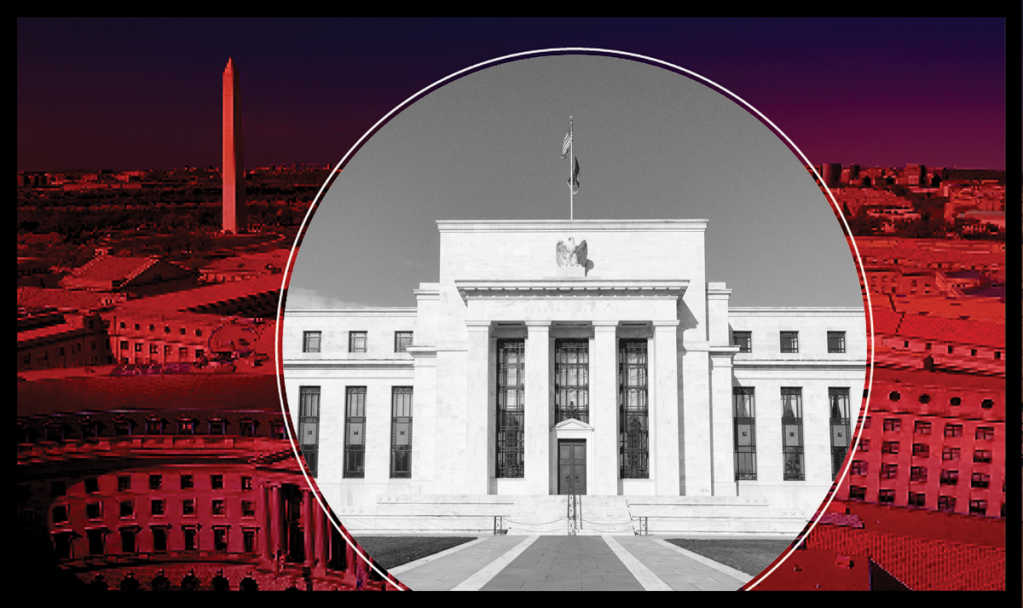Stocks fell Thursday as Russian troops launched a full-scale attack in Ukraine, and at least in the short-term, the turmoil could lower mortgage rates in the U.S.
During large-scale disruptions, investors often flee to safer options, such as U.S. Treasury notes, bonds and mortgage-backed securities. All things being equal, that dynamic tends to put downward pressure on mortgage rates.
“While mortgage rates trended upward in 2022, one unintended side effect of global uncertainty is that it often results in downward pressure on mortgage rates,” said Odeta Kushi, deputy chief economist of title insurance firm First American. “The 10-year Treasury yield is down today, likely in response to the worsening Russia-Ukraine conflict, and mortgage rates may follow suit.”
Kushi also drew a parallel to the weeks following the ‘Brexit’ vote in 2016, when a declining bond yield led to a decline in mortgage rates.
But the Federal Reserve was already balancing efforts to slow inflation without cooling the economy too much. Experts expect inflation will be exacerbated by the conflict, especially in light of sanctions on Russia, an oil-producing nation.
“The two forces are at odds with each other at the moment,” said Melissa Cohn, regional vice president at William Raveis Mortgage. “Inflation will be made worse by war, not better.”
Sponsored Video
Inflation is rising, but expectations that it will rise have not yet spun out of control, said Mark Zandi, chief economist at Moody’s Analytics.
“Inflation expectations remain anchored, but that’s the risk,” said Zandi. “Because it’s been high going on a year, if you throw Russia into the mix, with higher oil prices and higher inflation, we could hit an inflection point where those expectations become unanchored.”
How the Federal Reserve thinks about the conflict in Ukraine — how long it may last, the likelihood it will expand beyond the borders of Ukraine, and its impact on the economy — will determine how mortgage rates move in the long term. The Fed will meet again from March 15 to 16, and is expected to raise rates from 0 to 0.25%.
“If the Fed thinks the biggest impact of this disruption will be more upward inflationary pressure, then they will presumably stay the course they laid out, perhaps even accelerate it a bit,” said Jim Parrott, a non-resident fellow at the Urban Institute who was a senior economic advisor in the Obama administration. “If instead they decide that the larger impact will be to cool the economy, they might decide to move more cautiously.”
Joel Kan, an economist at the Mortgage Bankers Association, said Thursday that the trade group expects the Federal Reserve to increase rates four times this year.
“With this morning’s news on Russia, I don’t really think that that’s going to slow [The Fed] down for now,” he said. “They acknowledge that that’s a risk. But given the inflation picture, we’re going to see at least a couple of rate hikes.”
Mortgage rates fell slightly to 3.89% this week, down three basis points from the prior week, according to Freddie Mac’s weekly survey of the primary mortgage market.
The Federal Open Markets Committee said in January they expected it would “soon” be appropriate to raise the target range for the federal funds rate. It decided to keep the target range for the federal funds rate at 0 to 0.25%, but is expected to raise rates in early March.
Starting in January Fed has also tapered its monthly asset purchases. That tapering is set to conclude in March, rather than mid-year, as initially planned.
The conflict in Ukraine may have other impacts on the housing market besides potential short-term downward pressure on mortgage rates and long term inflation. Homebuilders are affected by the uncertainties brought by higher oil prices.
Stock market declines could temper homebuyer appetite for more expensive or second homes, and reduce the amount they have to make purchases.
“There are a lot more down days ahead, but it does feel like there’s no good that comes out of this from the perspective of the economy,” said Zandi. “It’s all downside. It just remains to be seen how much.”
Flávia Furlan Nunes contributed reporting.






I really like reading through a post that can make men and women think. Also, thank you for allowing me to comment!